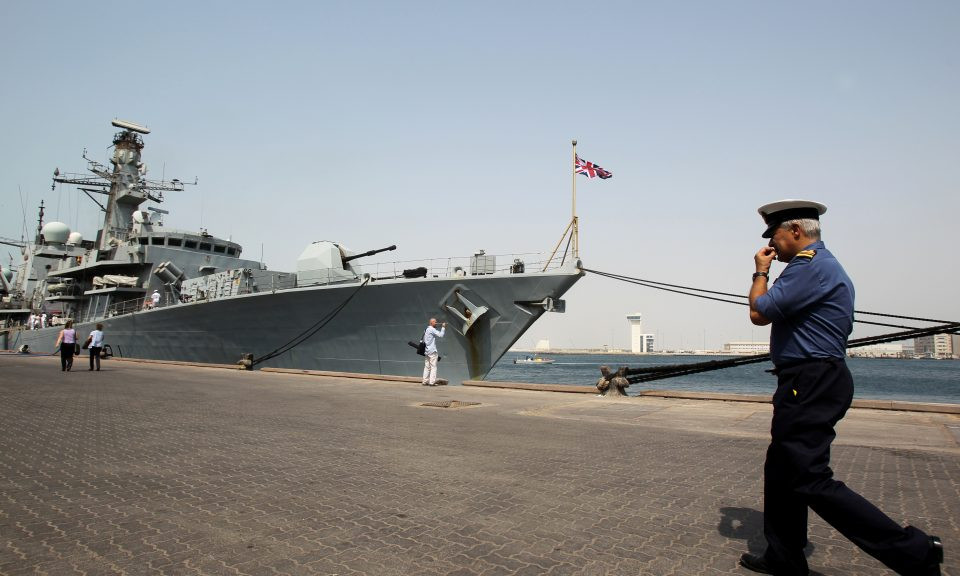US naval blockade of North Korea at risk of failure
(Baonghean.vn) - In the context of Pyongyang and Washington preparing to present "viewpoints and definitions" on the factors constituting "denuclearization" of the Korean Peninsula in the upcoming summits, it is impossible to ignore the increased military activities in the region, notably large-scale naval exercises.
 |
| The destroyer HMS Sutherland in Abu Dhabi port in 2011. Photo: AFP |
China’s live-fire drills near the Taiwan Strait come after Beijing’s largest-ever naval exercises. Russia, meanwhile, is conducting land, air, and sea exercises around the Kuril Islands, which border Japan’s northernmost island, Hokkaido. The US and South Korea are moving ahead with their annual joint military exercises, although they are smaller than usual.
There was also some good news. Seoul announced it would negotiate a peace treaty with Pyongyang at the upcoming summit, while officers from China’s People’s Liberation Army (PLA) visited Japan – the first such visit since military exchanges between the two countries were suspended six years ago.
Thus, easing regional tensions is possible. However, the arrival of the Royal Navy destroyer HMS Sutherland in the Japanese port of Yokosuka, along with the news that the UK will send two more warships to the port later this year, has signaled a new campaign, namely to enforce a multinational maritime blockade against North Korea.
However, experts are skeptical about this blockade. Professor William Brooks, who studies Japan at the Johns Hopkins School of Advanced International Studies in Washington, commented: “Japan would not send warships to carry out such a combat mission; South Korea is unlikely to abandon its conciliatory policy and join the campaign, and it is even opposed. China does not want to see North Korea collapse or become unstable. Russia is unlikely to accept such a strong move in waters near its borders.”
Meanwhile, Garren Mulloy, professor of international studies at Daito Bunka University in Saitama, Japan, also questioned the feasibility of such a maritime blockade, citing the obvious issue of land borders.
In addition, given that a maritime blockade is a clear act of aggression against another state under the framework of the United Nations Charter, those who support imposing a maritime blockade also face diplomatic problems./.








